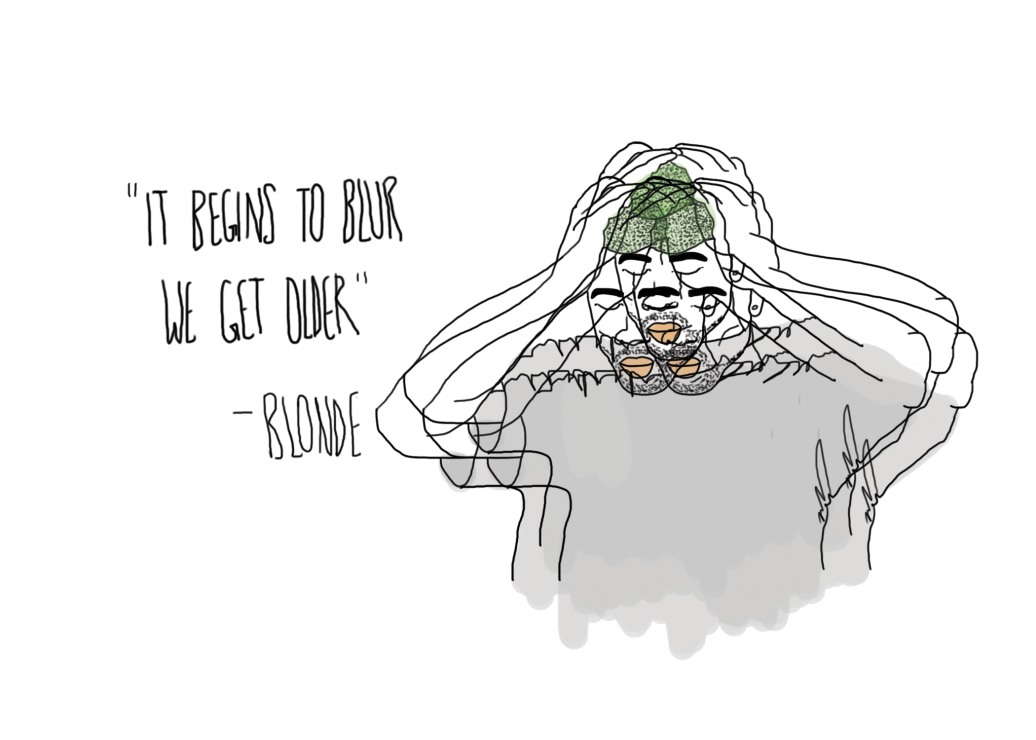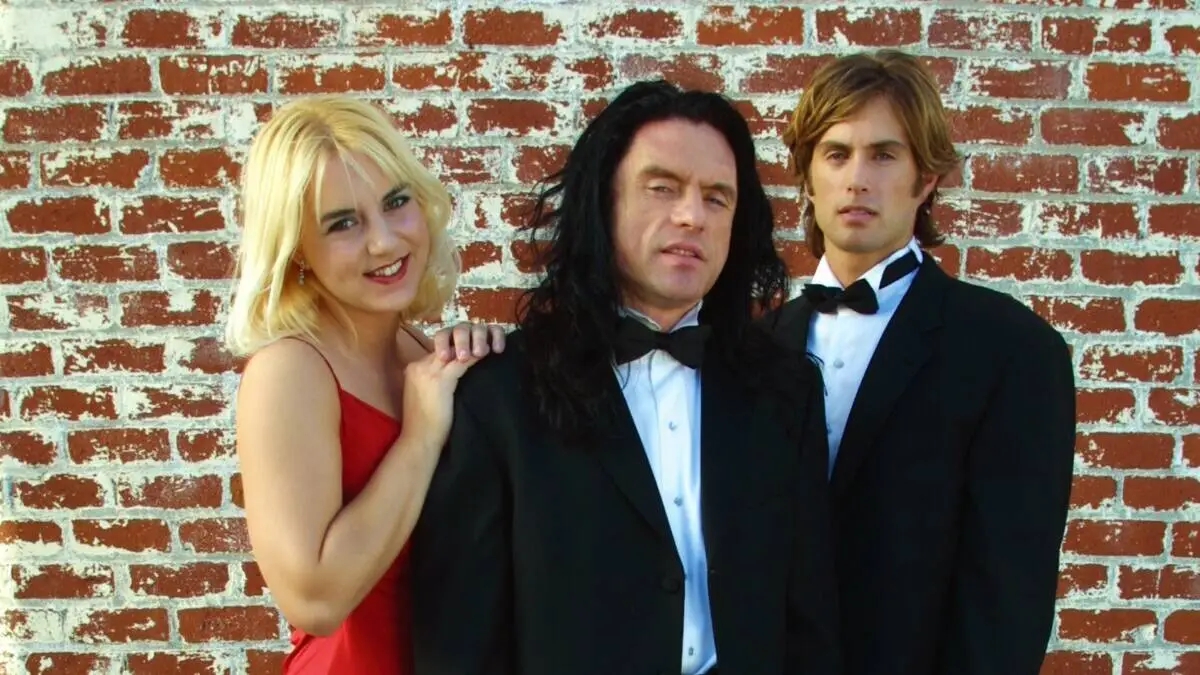Frank Ocean has always had an air of mystery surrounding him — a reserved cool, a magnetic solitude. Watch him stand off to the side, eyes down while he sips on an anonymous beverage in Odd Future’s iconic “Oldie” video. His gaze is also downwards in the video for “Nikes,” the first single from Ocean’s much-anticipated Blonde, the official follow-up to his 2012 classic Channel Orange. Ocean’s reserved disposition is dichotomous to his music, which is built upon expressiveness. He carries the wounded subject matter and diverse musical influences introduced on Channel Orange to their natural conclusion on Blonde, resulting in a deep, affecting opus that posits Ocean as an essential figure in modern music.
Blonde works in similar ways to Channel Orange in that its payout increases with every listen. Opener “Nikes” bears a similar sonic structure to Channel Orange’s opener “Thinkin’ Bout You” and excellent in equal measure. The first we hear of Ocean comes through a pitched-up vocoder, a choice that sounds terrible on paper but is effective in reality. “R.I.P. Trayvon, that nigga look just like me,” he sings. The line exemplifies many of the album’s best lyrics — declarative, simple, devastating.
Ocean is at his most gripping when these admissions breach his characteristic restraint, as on “Solo.” Accompanied solely by organ, the song’s theatrical, verbose beginnings stretch into wordless melisma as the song progresses, culminating in the torrential chorus: “There’s hell on Earth and the city’s on fire.” Traditional song structure is warped and dissected at times on Blonde, more so than with Orange.
These variations lend a natural pacing to the album uninterrupted by radio fare that would have been required from a label. Because of his departure from Def Jam, Blonde’s existence can’t help but beg the comparison to Chance the Rapper — also unsigned and wildly gifted. Regardless, Ocean’s newfound artistic freedom sweeps him to strange, beautiful places.
Ocean’s melodies, though complex and often dissonant, carry a rare ability to etch themselves into the psyche of the listener, as on the lustrous, Beach House-esque “Ivy.” The song is equivalent to Lemonade’s “Hold Up;” both act as a musical calm before the storm that later occupies much of the album. “I thought that I was dreaming when you said you loved me,” Ocean confesses, the heartache increasing with each iteration. His candour is disarming.
One of the album’s most memorable moments arrives in the form of a virtuosic feature from André 3000, who curses his false impression that every rapper writes their own lyrics. “Was I working just way too hard?” he asks. Like 3 Stacks, Ocean has commented on his work ethic in the past, saying in an Oyster Magazine interview that he strove to “be the best.” The success of Blonde on a critical and commercial level not only proves he is but also makes a strong case for artistry over appeal and risk over safety.
To contrast these explorations, “Nights” is likely to succeed on a commercial level. Its breezy guitar chords typify the album’s myriad nods towards indie rock before the song flips into a woozy trap jam that will surely bump from the speakers of parents’ whips this autumn. The song’s one-two-punch structure mimics that of Orange’s “Pyramids,” as does its placement in the middle of the album. Ocean’s words always cut deep — “Shut the fuck up, I don’t want your conversation,” he implores — and his flippancy here only makes him more enthralling.
Frank’s lyrical transparency and openness to new styles is ostensibly a result of Blonde’s collaborators. Sam Petts-Davies and Jonny Greenwood’s input are apparent on the frosty “Seigfried,” perhaps the album’s bleakest moment. But after the gospel-tinted palette cleanser of “Godspeed,” Ocean swerves into the anthemic closer “Futura Free,” a joyous victory lap with a lavishness reminiscent of collaborators Kanye West and Mike Dean circa My Beautiful Dark Twisted Fantasy.
Frank Ocean has crafted an album unparalleled by anything released this year in depth, songwriting, and scope. His extraordinary gifts match his considerable ambition — a combination often desired but rarely achieved. Blonde, then, is the captivating result of a man still healing from past trauma but simultaneously coming to grips with his considerable artistic abilities. Ocean’s gaze as he stands centre stage in the “Nikes” video is perpetually downward, until it becomes unclear whether he knows he’s onstage or not.
Ocean’s music works this way, too: a natural expression of his mesmerizing character, ostensibly without regard for the audience. But this apparent disregard is what makes Blonde great, especially in the face of the hype surrounding it. “Be yourself. Be secure with yourself. Rely and trust upon your own decisions,” his mother instructs on “Be Yourself.” She must be proud.








